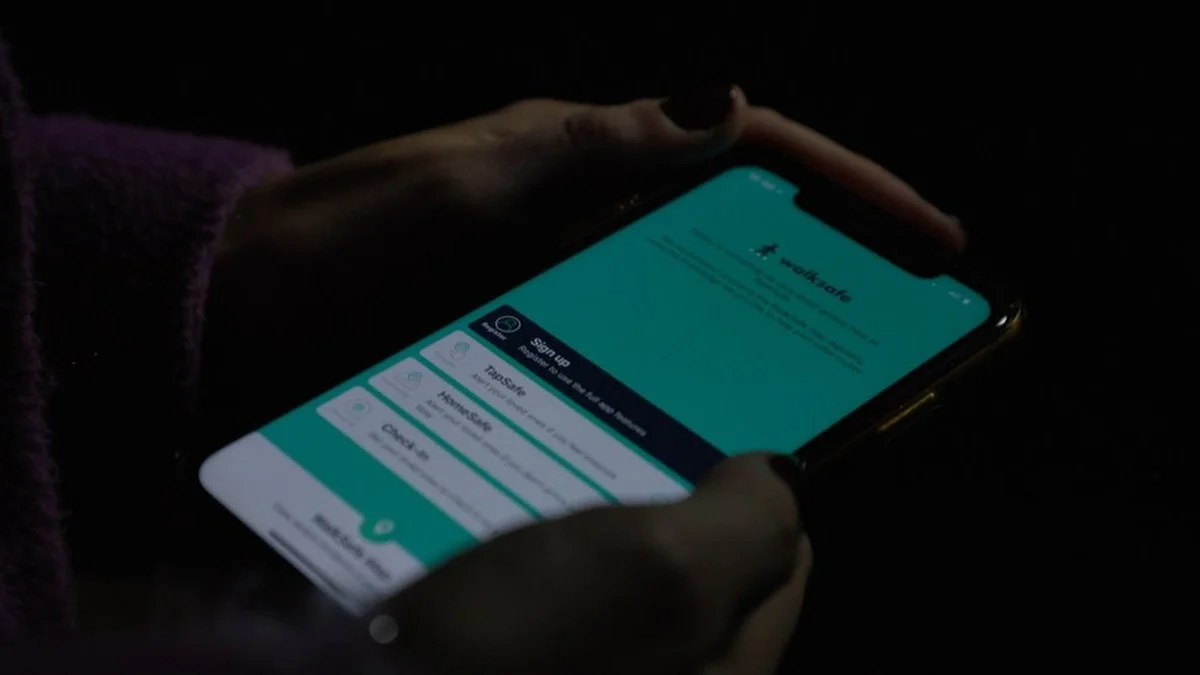24/11/2024
24/11/2024

NEW YORK, Nov 24: In February, 22-year-old Laken Riley was murdered while jogging on the University of Georgia campus, and this week, her killer, Jose Ibarra, was convicted of murder and sentenced to life in prison.
Laken’s sister, Lauren Phillips, now a student at the University of Georgia, shared her fear in court: “I cannot walk around my own college campus because I am terrified of people like Jose Ibarra,” she tearfully explained, as the trial concluded.
Before her death, Laken had used several safety precautions. She texted her mother, shared her location with friends, and activated her phone’s SOS feature when attacked. Despite her efforts, she was still killed, raising questions about the effectiveness of technology in protecting women.
Women are increasingly turning to tech tools for safety. Apps like Find My Friends and Strava allow users to share their location, while some rideshare apps let passengers share routes with trusted contacts. Personal safety alarms, often designed as sleek, portable devices, are gaining popularity, along with backpacks and shoe insoles that feature GPS trackers. Additionally, smartphones, watches, and other devices can make emergency calls with a simple button press.
However, with tragic cases like Riley's continuing to unfold, there's increasing scrutiny over the limitations and potential risks associated with these technologies.
In addition to intentional safety measures, smartphones often leave behind a digital trail that can be invaluable for holding criminals accountable. In Riley’s case, investigators used the location data from both her and her attacker’s phones to trace their movements, confirming that they were in close proximity before her death. Data from Riley’s smartwatch even revealed the exact moment her heart stopped.
Jane Anderson, a senior attorney at AEquitas, explained that digital evidence is increasingly expected in court cases. "In today’s world, there’s an expectation by a jury that there will be some kind of digital evidence," Anderson said. This can be especially crucial in cases involving domestic violence or sexual assault, where eyewitnesses are often absent.
For instance, cell phone and location data can corroborate a victim’s story, enhancing their credibility. "You should believe this victim because I corroborated it with digital evidence," Anderson added.
Digital evidence has played a pivotal role in several high-profile cases. For example, in the 2023 murder trial of Alex Murdaugh, video and location data were central to securing a conviction. Similarly, in the 2022 University of Idaho killings, investigators used location data to place suspect Bryan Kohberger near the scene of the crime.
However, Anderson cautioned that while digital data can assist investigations, it cannot replace proactive safety measures. "It’s an investigative tool, but it’s not going to keep you safe," she said.
While technology can empower users, it also carries risks, especially when used by malicious individuals. Victims of gender-based violence are often vulnerable to tech-savvy perpetrators who can exploit their devices to track their location or monitor communications.
Stephanie Love-Patterson, CEO of the National Network to End Domestic Violence, emphasized the importance of tech safety and privacy education. "We have to be aware that there are people who seek to exploit technology for harm," she said, referring to cases where perpetrators have access to their victim's devices.
To protect themselves, victims should be proactive about limiting the digital footprint they leave behind. The Safety Net Project encourages individuals to only share location information with trusted people, regularly change passwords, and document any suspicious activity.
Moreover, staying vigilant and reporting concerning behavior is essential. In Riley’s case, a UGA graduate student had reported a suspicious individual trying to break into her apartment on the same day Riley was killed. Surveillance footage confirmed the incident, and phone location data linked Riley’s attacker to the scene.
This type of vigilance was instrumental in securing a conviction for Ibarra. Earlier this week, the graduate student testified in court, helping to ensure justice was served.


